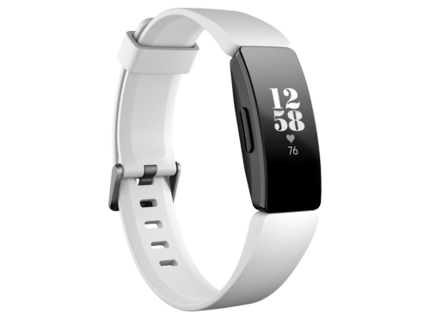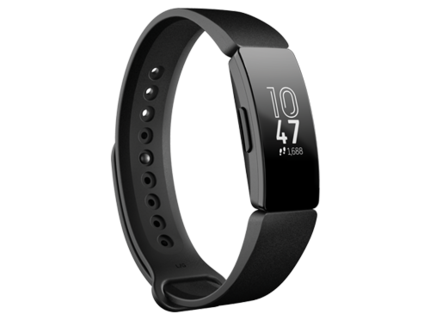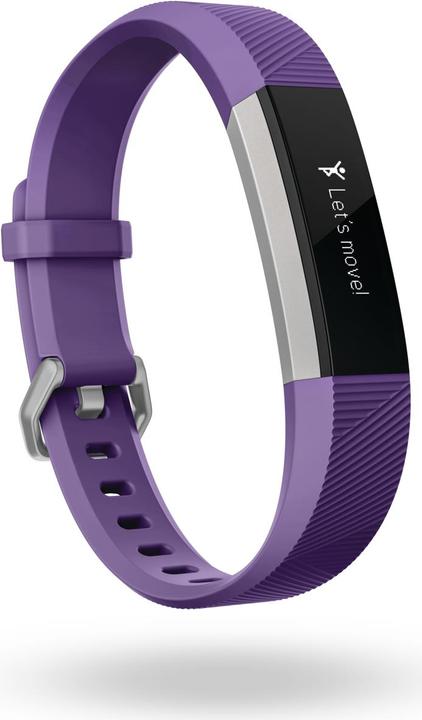

Fitbit's dystopia: the tracker you can't buy
The Fitbit Inspire can only be purchased by employers for their employees. The aim is to improve the health of the working world. That sounds like a surveillance nightmare. A look at similar projects and the law shows: Half as wild, but still questionable.
The new tracker from Fitbit is called Fitbit Inspire and marks a new step towards total transparency towards third parties and a further step towards the complete abandonment of privacy. Because you can't buy the Inspire in a shop, but only via Fitbit's health-for-employers platform Fitbit Health Solutions.
.
Say: One day, your boss comes to you with a great new health idea. He says that the solution is simple, uncomplicated, innovative and unique. He presents you with your new Fitbit. "Put the high-quality device on your wrist... Yes, it looks nice," he says.

Source: fitbit.com
But what have you just put on? A tracker that records your fitness and health data. You don't have a choice. When the boss speaks, the boss speaks.
The Fitbit Inspire under the magnifying glass
The Fitbit Inspire comes in two versions:
- Fitbit Inspire
- Fitbit Inspire HR
The features of the devices are not very sensational and you already know them. The basic Inspire model can do the following:
- Motion tracking
- Sleep tracking
- Calorie consumption
- Reminders if you sit too long: Move!
- Friendly notifications when you have reached your goals
- Notifications for calendar, messages and calls when your smartphone is nearby
- Touch screen
- Waterproof up to 50 metres
- The battery should last five days
- A clip-on system is available separately
The slightly better model, the Inspire HR, can do everything the basic model can do and more:
- 24/7 heart rate measurement
- Sleep quality analysis
- Over 15 goal-orientated fitness exercise instructions
- Real-time step and GPS tracking
- Cardio fitness level. What exactly this means is not clearly described on the website
- Comfortable silicone strap
In essence, a Fitbit Ace with minor adjustments to the display and far less personal freedom.
Why this is bad
Fitbit's intentions sound nice. The whole Health Solutions programme stands.
Business leaders recognise the burden of rising healthcare costs to their companies and their employees.
The site, which feels somewhat US-centric, reports on healthcare costs to companies caused by employees and the problems they cause. Obesity. Diabetes. Not really with much medical background, but more like "Let's make it go away. Bosses won't have to worry about it anymore".

That's where the whole event becomes problematic. Your boss has power over you, no matter how hands-off his leadership principles are. And if you either want a job or don't want a Fitbit... food has to get on your table somehow, right? An employer can force you to give up your data, regardless of your desire to keep your privacy as intact as possible. Or maybe not?
Fitbit's Health Solutions programme has answers to all kinds of questions in its Resource Centre, along with statistics and fun quizzes that employees can take to find out what type of fit they are. The only thing missing is any information on data security.
So what happens to the data? It is analysed in the cloud. It can be assumed that the data will be correlated with other Fitbit data - according to Fitbit, it has recorded five billion nights of sleep. In addition: Does the employer have access to the data that is recorded outside of working hours? "I've seen that you don't sleep much. And your sleep quality is poor. Why?" asks the boss at four o'clock in the afternoon. The answer would be something like "Because I was dancing and drinking until four in the morning. I'd be amazed if I was allowed to drive again now", but that's not something you tell your boss. But: is he even allowed to ask about it?
Causa Helsana: In Switzerland
The "Helsana+" case could provide answers to some of these questions. In 2017, the insurance group Helsana launched the Helsana+ programme. The short version of the idea: insurance customers strap on a Fitbit or other tracker. "If you're fit, you pay less", writes srf.ch about the insurance company's points collection programme. Helsana is not alone in this, but the case was notable in that the discounts are not only aimed at those who have taken out supplementary insurance, but also those with basic insurance. This means that the compulsory and increasingly expensive health insurance in Switzerland can become cheaper by taking a few walks. Or that you can dust off other bonuses.

On request from Helsana, media spokeswoman Dragana Glavic says that the insurance company does not have access to detailed data either. The Helsana+ app, which can be used with or without a tracker, analyses the following:
- Does the person walk 10,000 steps?
- Is the person burning 150 calories in 30 minutes?
- Does the person have a pulse of 110 beats per minute for at least 30 minutes?
Helsana itself only recognises that a person has fulfilled one of these criteria over a certain period of time. But the insurers don't know which one that is. Fitbit, on the other hand, knows this very well, because the data of a tracker can only be activated with the consent of the manufacturer's general terms and conditions. Just like when you buy a tracker in a shop.
In companies: Only rewards, no penalties
There is no question that programmes such as Fitbit Health Solutions can be interesting for companies. After all, healthy employees perform better, are less ill and are generally happier. The risks associated with institutionalised data collection within a company are covered by the Federal Act on Data Protection (FADP)
.
In FADP Art. 3, personal data is generally defined as "any information relating to an identified or identifiable person". According to the same article, the following are "particularly sensitive data":
- religious, philosophical, political or trade union opinions or activities,
- health, privacy or racial origin,
- measures of social assistance,
- administrative or criminal prosecutions and sanctions;
Furthermore, DSG Art. 4 regulates how the data may be collected from you as a data provider. You must give your explicit consent for particularly sensitive data. And DSG Art. 8 stipulates that you can ask the person collecting the data - i.e. your boss or HR - at any time and request information about what happens to your data.

However, it is not regulated which data your employer may view. However, the question is irrelevant in most known programmes, as companies do not see all the data, but only reports. Like with Helsana.
If an employee from the HR office or your boss approaches you and says something like "You only slept for four hours last night? Not good..." is definitely illegal. A quick enquiry at HR Digitec Galaxus reveals this: HR is only allowed to reward you for your health endeavours, not punish you. In all known programmes, a company has no access to data that is recorded outside of your working hours.
Only Fitbit gets your data. All data. This data is then processed further, not only in your account, but also by third parties.
We transfer data to our group companies, service providers and other partners who process the data on our behalf, based on our instructions and in accordance with this Policy and any other applicable confidentiality and security safeguards. These partners provide services to us worldwide, including customer support, information technology, payments, sales, marketing, data analysis, research and surveys.
You agree to this when you start using a Fitbit product. It's worth it for Fitbit, because the company cashes in several times over:
- Employer pays Fitbit money for tracker and service
- Advertising and research customers pay Fitbit money for data
- Users can buy other Fitbit products, such as the Fitbit Aria scale, and use all the functions of the ecosystem
So, that's it. Even if your employer doesn't have access to your data, everyone else does. You have to live with that. Or just don't wear a tracker.
Journalist. Author. Hacker. A storyteller searching for boundaries, secrets and taboos – putting the world to paper. Not because I can but because I can’t not.
